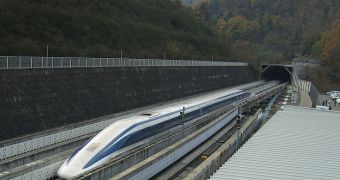With Tuesday's elections over, it's becoming clear that Republicans have gained control of the House, whereas the Democrats still retained control of the Senate. Now, analysts are wondering what this change will entail for plans to build high-speed railways across America.
Europe, Japan and other nations are way ahead of the United States in this area, and the previous Congress has been working on catching up with them. But the new Congress may not be as willing to do so.
This presents the new Republicans in the House with a dilemma. On one hand, they want to cut discretionary, non-military government spending down to 2008 levels, but on the other hand they have promised the electorate they will create more jobs.
Constructing cross-country railways is about as close as you can get to creating thousands of jobs at once, but then again construction efforts cannot progress without the necessary funding.
Undoubtedly, projects to construct high-speed railways across the United States will take a lot of money to complete, given how large the country is. But will Republicans approve the budget?
Representatives of the party have oftentimes decried the proposed transportation system as unnecessary and too expensive for a nation heavily in debt, and just making its way out of a deep economic recession.
But, at the same time, they promised the public more jobs, given the large portion of the general population that is now unemployed, or living with only their bear necessities covered.
There is also a historical aspect to all of this. Over the years, most major infrastructure project, such as building railroads, dams or highways, were undertaken during very tough economic times, because they allowed for thousands of jobs in one go.
Are the Republicans really willing to renounce this possibility, and then hold their heads up high in front of their voters? That still remains to be seen, as discussions about where the government budget will be cut have not begun yet.
Analysts are however skeptical that both parties will come to a consensus in this regard, as these discussions will call on both Democrats and Republicans to make hard decisions.
America should take China as an example on this one. Rather than controlling its budget, the Communist nation is beginning to spend billions of dollars on massive infrastructure projects, that give work to its massive workforce.
The largest dam in the world, and one of the most complex high-speed rail systems ever are just two of the grandiose projects finished in China thus far, and others are on their way to being completed as we speak.

 14 DAY TRIAL //
14 DAY TRIAL //